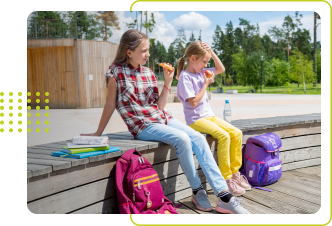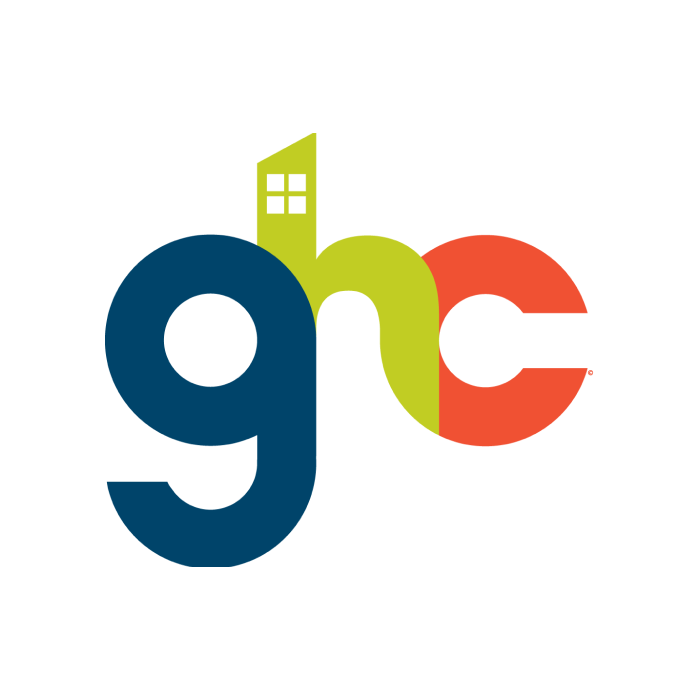Looking for quality homeschooling resources without breaking the bank? In this blog post, we'll explore a wealth of free and low-cost learning tools, budget-friendly curriculum choices, library resources, and creative DIY activities that will help you make the most of your homeschool budget for your child's education.
Gone are the days when homeschooling meant investing in expensive boxed curriculum sets or signing up for pricey online programs. Today, the internet is bursting with free educational resources, from interactive learning platforms to comprehensive lesson plans and printables. And let's not forget the often-overlooked goldmine of knowledge: your local library! With its vast collection of books, educational DVDs, and even homeschool-specific programs, the library can become your family's second classroom.
But homeschooling on a budget isn't just about finding free resources; it's also about getting creative and embracing hands-on learning. From DIY science experiments using household items to exploring the great outdoors as your living textbook, the possibilities for frugal and fun learning are endless. When you tap into rich yet affordable and helpful resources for child development, you open up even more opportunities for resource sharing, co-op classes, and group field trips that can help stretch your homeschool budget further.
- Homeschooling on a Budget
- Unlocking the Power of Free Online Learning Platforms
- Your Local Library: A Homeschooler's Best Friend
- Budget-Friendly Curriculum Choices That Don't Sacrifice Quality
- Getting Creative with DIY Activities and Hands-On Learning
- Embracing the Free and Frugal Homeschooling Journey
- Frequently Asked Questions
KEY TAKEAWAY
- Discover free online learning platforms and educational websites.
- Learn how to utilize your local library's resources for homeschooling.
- Find budget-friendly curriculum options that don't compromise on quality.
- Get creative with DIY activities and hands-on learning experiences.
- Connect with other homeschooling families for resource sharing and support.
Unlocking the Power of Free Online Learning Platforms

In the digital age, homeschooling families have access to an incredible array of free online learning platforms that can significantly enhance and supplement their educational journey. These platforms offer a wealth of resources, from interactive lessons and educational videos to printable worksheets and virtual field trips. By leveraging these free tools, you can provide your children with a diverse, engaging, and high-quality learning experience without straining your budget.
Discovering the Best Free Learning Websites
When it comes to free online learning platforms, the options can be overwhelming. To help you navigate this vast landscape, we've curated a list of some of the best free learning websites that cater to a wide range of ages and subjects:
-
1.
Khan Academy: This well-known platform offers free, high-quality educational content in math, science, history, and more, with interactive exercises and instructional videos.
-
2.
Duolingo: Perfect for language learning, Duolingo gamifies the learning process, making it fun and engaging for kids and adults alike.
-
3.
Codecademy: If your child is interested in coding and computer science, Codecademy offers free interactive coding lessons in various programming languages.
-
4.
Smithsonian Learning Lab: Dive into the vast collections of the Smithsonian Institution with free access to images, videos, and educational resources covering a wide range of subjects.
-
4.
Crash Course: This popular YouTube channel offers engaging, informative, and humorous educational videos on topics ranging from history and literature to science and psychology.
Incorporating Free Online Courses and MOOCs
Massive Open Online Courses (MOOCs) have revolutionized the way people learn, offering free online courses from top universities and institutions around the world. While many MOOCs are geared towards adult learners, some platforms offer courses specifically designed for younger students (such as those at the middle school level) or can be adapted for parents homeschooling. Some popular MOOC platforms include:
-
1.
Coursera: Offering courses from top universities, Coursera covers a wide range of subjects, from computer science and data analysis to psychology and personal development.
-
2.
edX: Similar to Coursera, edX partners with leading universities to offer free online courses in various disciplines, including science, math, humanities, and more.
-
3.
FutureLearn: With a user-friendly interface and a diverse selection of courses, FutureLearn offers free online learning opportunities for all ages.
By incorporating these free online learning platforms into your homeschool routine, you can provide your children with a rich, diverse, and engaging educational experience without the hefty price tag. Take the time to explore these resources and discover how they can help you unlock the full potential of your homeschool journey on a budget.
Your Local Library: A Homeschooler's Best Friend
When it comes to homeschooling on a budget, your local library is an invaluable resource that should not be overlooked. Libraries offer a wealth of free educational materials, programs, and services that can greatly enhance your homeschool experience without adding any extra costs. By making the most of your library's resources, you can provide your children with a diverse and enriching learning environment that extends far beyond the walls of your home.

Borrowing Books and Educational Materials
One of the most obvious benefits of using your local library for homeschooling is the ability to borrow books and educational materials for free. Libraries have extensive collections of books on every subject imaginable, from classic literature and history to science, math, and the arts. In addition to books, many libraries also offer:
-
1.
Educational DVDs and documentaries
-
2.
Audiobooks and read-along books
-
3.
Learning kits and hands-on materials
-
4.
Magazine and journal subscriptions
-
5.
Foreign language learning resources
By taking advantage of these free resources, you can significantly reduce your homeschool expenses while still providing your children with access to a wide range of high-quality educational materials.
Utilizing Library Programs and Services
Libraries offer much more than just books and media. Many libraries have programs and services specifically geared towards homeschooling families, such as:
-
1.
Homeschool book clubs and discussion groups
-
2.
Educational workshops and classes
-
3.
Guided research assistance and homework help
-
4.
STEM and maker programs
-
5.
Writing and creative arts workshops
These programs provide excellent opportunities for socialization, hands-on learning, and exploring new subjects and interests, all at no cost to you.
Taking Advantage of Digital Library Resources
In the digital age, libraries have expanded their offerings to include a wide range of online resources that can be accessed from the comfort of your own home. These digital resources may include:
-
1.
eBooks and digital audiobooks
-
2.
Online databases and research tools
-
3.
Educational software and learning platforms
-
4.
Streaming services for educational videos and documentaries
-
5.
Language learning apps and programs
By taking advantage of these digital resources, you can provide your children with access to a wealth of educational materials without ever having to leave your home.
Creating a Library-Based Learning Environment

To fully integrate your local library into your homeschool routine, consider setting aside dedicated library days each week or month. During these visits, encourage your children to explore new subjects, check out books and materials that interest them, and participate in library programs and events. By fostering a love for the library and all it has to offer, you'll be setting your children up for a lifetime of learning and discovery.
Budget-Friendly Curriculum Choices That Don't Sacrifice Quality
When homeschooling on a budget, finding affordable curriculum options that still provide a high-quality education can be a challenge. However, with a little research and creativity, you can discover budget-friendly curriculum choices that will meet your children's learning needs without compromising on academic rigor or engagement.

Exploring Open Educational Resources (OER)
Open Educational Resources (OER) are freely accessible, openly licensed educational materials that can be used for teaching, learning, and research. These resources, which include textbooks, worksheets, lesson plans, and more, are created by educators and organizations who believe in making quality education accessible to all. Some excellent OER repositories include:
-
1.
CK-12 Foundation: Offering free, standards-aligned textbooks, worksheets, and interactive resources for a variety of subjects and grade levels.
-
2.
Open Textbook Library: A collection of openly licensed textbooks covering a wide range of subjects, from math and science to history and literature.
-
3.
Curriki: A community-driven platform offering free, open educational resources for K-12 education, including worksheets and interactive learning tools.
By incorporating OER into your homeschool curriculum, you can access high-quality educational materials without the high costs associated with traditional textbooks and resources.
Embracing Digital Curriculum Options
Digital curriculum options have become increasingly popular among homeschooling families, offering affordable, flexible, and interactive learning experiences. Many digital curriculum providers offer subscription-based models or one-time purchases that are significantly more budget-friendly than traditional print materials. Some notable digital curriculum options include:
-
1.
Time4Learning: An online, subscription-based curriculum for PreK-12th grade, covering subjects like math, language arts, science, and social studies.
-
2.
Easy Peasy All-in-One Homeschool: A free, online Christian homeschool curriculum for grades K-12, offering a comprehensive range of subjects and materials.
-
3.
Khan Academy: While not a complete curriculum, Khan Academy offers free, high-quality educational content in math, science, history, and more, which can be used to supplement your chosen curriculum.
Opting for digital curriculum choices means you can save money on textbooks and materials while still providing your children with an engaging and effective learning experience.
Creating Your Own Curriculum with Affordable Resources
For homeschooling families on a tight budget, creating your own curriculum using affordable resources can be a great option. By piecing together free and low-cost materials from various sources, you can design a customized learning plan that meets your children's unique needs and interests. Some tips for creating your own budget-friendly curriculum include:
-
1.
Utilizing free online resources, such as educational websites, YouTube channels, and OER repositories.
-
2.
Purchasing used textbooks and educational materials from online marketplaces, thrift stores, or homeschool consignment sales.
-
3.
Joining homeschool co-ops or resource-sharing groups to split the costs of materials and resources with other families.
-
4.
Focusing on hands-on, project-based learning experiences that utilize everyday materials and resources.
Get creative and resourceful with your curriculum choices, and you can provide your children with a rich and engaging education without breaking the bank.
Getting Creative with DIY Activities and Hands-On Learning

Homeschooling on a budget doesn't mean sacrificing fun, creativity, or hands-on learning experiences. In fact, incorporating DIY activities and projects into your homeschool routine can be an excellent way to foster your children's love for learning while keeping costs low. By getting creative with everyday materials and resources, you can provide your children with engaging, educational experiences that will stick with them long after the lesson is over.
Utilizing Everyday Materials for Educational Activities
One of the best things about hands-on learning is that it can be done with simple, everyday materials that you likely already have around your home. With a little creativity, you can transform these materials into educational tools that will keep your children engaged and excited about learning. Some ideas for using everyday materials in your homeschool include:
-
1.
Measuring and sorting activities with buttons, beads, or dried beans
-
2.
Creating art projects with recycled materials, such as cardboard boxes, egg cartons, or plastic bottles
-
3.
Exploring science concepts with kitchen ingredients, like baking soda, vinegar, or cornstarch
-
4.
Building math skills with homemade manipulatives, such as popsicle stick counters or paper clip patterns
-
5.
Developing fine motor skills with activities like lacing cards, play dough, or fingerpainting
Think outside the box and use everyday materials in new ways to create hands-on learning experiences that are both educational and budget-friendly.
Encouraging Outdoor Exploration and Nature-Based Learning
One of the most affordable and enriching ways to incorporate hands-on learning into your homeschool routine is by encouraging outdoor exploration and nature-based learning. The great outdoors offers an endless array of educational opportunities, from observing wildlife and collecting natural specimens to exploring scientific concepts like weather, erosion, and plant growth. Some ideas for nature-based learning activities include:
-
1.
Going on nature walks and creating nature journals to document observations and findings
-
2.
Conducting backyard science experiments, such as testing soil pH or observing insect life cycles
-
3.
Creating art projects with natural materials, like leaf rubbings, pressed flower collages, or rock paintings
-
4.
Participating in citizen science projects, such as bird counts or butterfly migrations
-
5.
Growing a garden and learning about plant life cycles, nutrition, and sustainability
By making nature a central part of your homeschool experience, you can provide your children with hands-on learning opportunities that are both educational and budget-friendly.
Embracing Project-Based Learning and Unit Studies
Project-based learning and unit studies are excellent ways to incorporate hands-on, interdisciplinary learning into your homeschool routine. By focusing on a central theme or topic and exploring it through a variety of subjects and activities, you can create a rich, immersive learning experience that engages your children's interests and passions. Some tips for embracing project-based learning and unit studies include:
-
1.
Choosing themes or topics that align with your children's interests and curiosities
-
2.
Incorporating a variety of subjects and skills into each project or unit, such as reading, writing, math, science, and art
-
3.
Encouraging your children to take the lead in planning and executing projects, fostering independence and self-directed learning
-
4.
Utilizing free or low-cost resources, such as library books, online tutorials, or community experts, to support each project or unit
-
5.
Celebrating your children's achievements with project showcases, presentations, or portfolios
Try embracing project-based learning and unit studies to create hands-on, engaging learning experiences that are both educational and budget-friendly.
Embracing the Free and Frugal Homeschooling Journey
Throughout this blog post, we've explored a wealth of strategies and resources for a homeschooling mom or dad on a budget, from utilizing free online learning platforms and library resources to discovering budget-friendly curriculum options and incorporating hands-on, DIY activities into your learning routine. By embracing these free and frugal approaches to homeschooling, you can provide your children with a rich, engaging, and high-quality education without breaking the bank.

Frequently Asked Questions

How do I prepare myself for homeschooling?

Preparing yourself for homeschooling involves several key steps:
-
1.
Research your state's homeschooling laws and requirements to ensure compliance.
-
2.
Evaluate your child's learning style, interests, and educational needs to inform your curriculum choices.
-
3.
Create a dedicated learning space in your home that is comfortable, organized, and conducive to learning.
-
4.
Develop a support network of other homeschooling families, online communities, and local resources to provide guidance and encouragement.
-
5.
Cultivate a growth mindset and embrace the role of a facilitator of learning, fostering your child's natural curiosity and love for discovery.
-
6.
Set realistic goals and expectations for your homeschool journey, remembering that flexibility and adaptability are key to success.
With these steps, you'll be well-equipped to navigate the challenges and rewards of this enriching educational path.

Which curriculum is best for homeschooling?

The best curriculum for homeschooling depends on several factors, including your child's learning style, interests, and educational needs, as well as your family's budget, values, and goals. Some popular homeschool curriculum options include:
-
1.
Classical Conversations: A Christian-based, classical education approach that emphasizes grammar, logic, and rhetoric.
-
2.
Sonlight: A literature-based curriculum that incorporates history, geography, and science through engaging reading materials.
-
3.
Math-U-See: A mastery-based math curriculum that utilizes manipulatives and a multi-sensory approach to learning.
-
4.
Apologia: A Christian-based science curriculum that offers in-depth, hands-on learning experiences.
-
5.
Time4Learning: An online, interactive curriculum that covers a wide range of subjects for PreK-12th grade.
-
6.
Oak Meadow: A nature-based, holistic curriculum that emphasizes creativity, critical thinking, and independent learning.
Ultimately, the best curriculum for your homeschool will be one that aligns with your family's unique needs, interests, and goals. Don't be afraid to mix and match resources, try new approaches, and adjust your curriculum choices as your child grows and evolves as a learner.
 Resources
Resources
 Curriculum
Curriculum
 Workshop Sessions
Workshop Sessions

